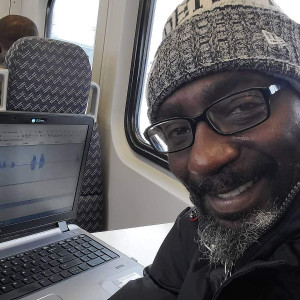How To Win Friends & Influence People Ch. 1
Description
Vocal Characteristics
Language
EnglishVoice Age
Middle Aged (35-54)Accents
North American (General) North American (US General American - GenAM)Transcript
Note: Transcripts are generated using speech recognition software and may contain errors.
if you want to gather, honey, don't kick over the beehive. On May seven, the most sensational manhunt new york city had ever known had come to its climax after weeks of search, two gun Crowley the killer, the gunman who didn't smoke or drink was at bay trapped in his sweetheart's apartment on West End Avenue. 150 policemen and detectives laid siege to his top floor hideaway. They chopped holes in the roof. They tried to smoke out Crowley, the cop killer, with tear gas. Then they mounted their machine guns on surrounding buildings and for more than one hour, one of new york's fine residential areas will reverberate with the crack of pistol fire and the rat a tat of machine gun Crowley crouching behind an overstuffed chair, fired incessantly at the police. 10,000 excited people watched the battle, nothing like it had ever been seen before on the sidewalks of new york. When Crowley was captured, police Commissioner Ep moroni declared that the two gun Desperado was one of the most dangerous criminals ever encountered in the history of new york. He will kill, said the commissioner at the drop of a feather. But how did two gun Crowley regard himself we know, because while the police were firing into his apartment, he wrote a letter addressed to whom it may concern, and as he wrote, the blood flowing from his wounds left the crimson trail on the paper. In his letter, Crowley said, under my coat, is a weary heart, But a kind one one that would do nobody any harm. A short time before this, Crowley had been having a necking party with his girlfriend on a country road out on Long Island. Suddenly a policeman walked up to the car and said, let me see your license without saying a word, curly jewish gun and cut the police down with a shower of lead. As the dying officer fell curly, leapt out of the car, grabbed the officer's revolver and fired another bullet into the prostate body. And that was the killer who said under my coat is a weary heart, but a kind one that would do nobody any harm. Crowley was sentenced to the electric chair when he arrived at the death house and sing sing, did he say this is what I get for killing people? No, he said this is what I get for defending myself. The point of the story is this two Gun Crowley didn't blame himself for anything. Is that an unusual attitude among criminals? Do you think so? Listen to this. I spent the best years of my life giving people a lighter pleasures, helping them have a good time and all I get is abuse the existence of a hunted man that's Al Capone speaking, yes, America's most notorious public enemy, the most sinister gang leader, whoever shot up Chicago Capone didn't condemn himself. He actually regard himself as a public benefactor and unappreciated and misunderstood public benefactor. And so did Dutch Schultz before he crumpled up under gangster bullets in Newark Dutch Schultz, one of new york's most notorious rats. Said in a newspaper interview he was a public benefactor and he believed it. I have had some interesting correspondence with louis laws who was warden of new york's infamous Sing Sing prison for many years on the subject. And he declared that few of the criminals and Sing sing regard themselves as bad men, they are just as human as you and I. So they rationalize, they explain, they can tell you why they had to crack a safe or be quick on the trigger finger. Most of them attempt by a form of reasoning, fallacious or logical to justify their antisocial acts, even to themselves, consequently stoutly maintaining they should never have been imprisoned at all. If Al Capone, two gun Crowley dutch, Schultz and the desperate men and women behind prison walls don't blame themselves for anything. What about the people with whom you and I come in contact, John WAnamaker, founder of the Stores that bear his name, once confessed, I learned 30 years ago. That is foolish to scold. I have enough trouble overcoming my own limitations without fretting over the fact that God has not seen fit to distribute evenly the gift of intelligence. Wanamaker learned his lesson early, but I personally had to blunder through this old world for a third of a century Before it even began to dawn on me that 99 times out of 100 people don't criticize themselves for anything, no matter how wrong it may be.
